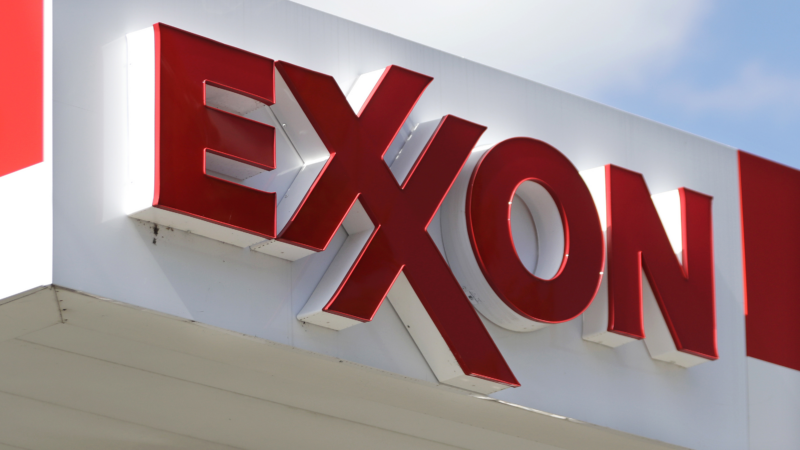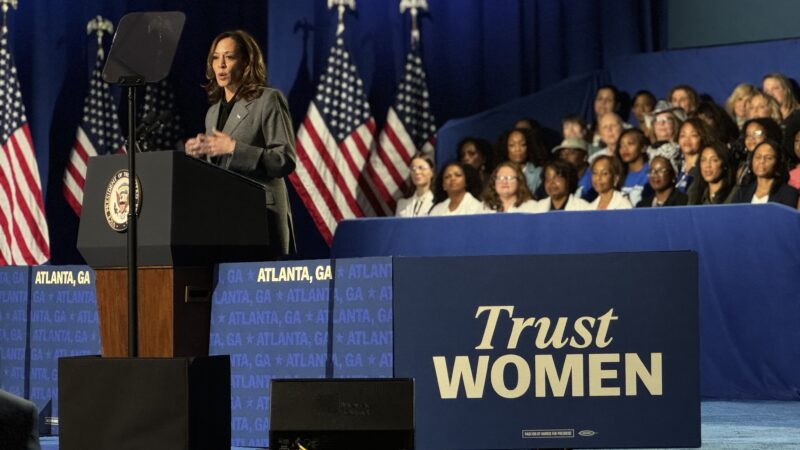California sues ExxonMobil for misleading public on plastic recycling
California has filed a first-of-its-kind lawsuit against ExxonMobil, alleging that the company has spent decades misleading the public about the efficacy of plastic recycling.
The lawsuit alleges that ExxonMobil has known for decades that recycling plastics was technically and economically challenging and would do little to stem the enormous volume of plastic waste that ends up in the environment. Despite that knowledge, the lawsuit says, the company promoted recycling as a viable option.
“For decades, ExxonMobil has been deceiving the public to convince us that plastic recycling could solve the plastic waste and pollution crisis when they clearly knew this wasn’t possible,” California Attorney General Rob Bonta said in a statement on Monday.
By misleading the public, the suit says, ExxonMobil encouraged the excessive use of plastic, which is produced from fossil fuels. That generated a waste problem that has cost the state more than $400 million a year in cleanup costs.
The brief filed by the California attorney general’s office cited reporting by NPR that found the plastics industry promoted recycling even though its officials have long known that the activity would probably never be effective on a large scale. NPR contacted ExxonMobil for comment, but, at the time of publication, the company had not responded.

(Sergio Flores | AFP via Getty Images)
A lawsuit long in the making
California Attorney General Rob Bonta said in 2022 that his office was launching an investigation of the fossil fuel and petrochemical industries for their alleged role in worsening plastic pollution, which his office described as a global crisis.
Former industry officials have said the goal was to avoid regulations and ensure that demand for plastics, which are made from fossil fuels, kept growing. Despite years of recycling campaigns, less than 10% of plastic waste gets recycled globally, and the amount of plastic waste that’s dumped in the environment continues to soar.
“Big Oil and the plastic industry’s lies are the beating heart of the plastic waste crisis, which makes California’s groundbreaking lawsuit against ExxonMobil the most important legal action to date in the global fight against plastic pollution,” Richard Wiles, president of the Center for Climate Integrity, said in a statement.
The Center for Climate Integrity published a report in February that indicated the plastics industry championed recycling mainly for its public relations value, rather than as a tool for avoiding environmental damage. “We are committed to the activities, but not committed to the results,” a vice president at Exxon Chemical said during a meeting in 1994 with staff for the American Plastics Council, a trade group, according to a document uncovered by the Center for Climate Integrity.
“The basic issue…” is money
One of the biggest challenges is that making new plastic is relatively cheap. But recycling generally costs as much as or more than the material is worth, a director of environmental solutions at B.F. Goodrich explained at another industry meeting in 1992. The “basic issue,” he said, “is economics.”
California filed its lawsuit against Exxon months before countries are scheduled to gather for a final round of negotiations to hammer out a global treaty to end plastic pollution. Environmental groups say the talks have been hampered by fossil-fuel producing countries, which have been blocking proposals to limit the production of new plastic. Researchers say production caps are essential to rein in plastic pollution.
Exxon has said the problem of plastic waste can be solved without cutting how much plastic society uses. Exxon is among a group of companies that have been investing in what the industry calls “advanced recycling” plants. The facilities are designed to turn plastic waste, including material that can’t be processed through traditional mechanical recycling, into liquids and gasses that can then be used to make new plastics and other chemical products.
“Advanced recycling is a real, proven solution that can help address plastic waste and improve recycling rates,” Exxon said in a statement earlier this year to NPR.
However, critics say the technology is ineffective and harmful to the environment and human health.
The economics of plastic recycling “haven’t changed at all. Not at all. And if virgin [plastic] was always cheaper and of higher quality, that’s still the case today,” Wiles of the Center for Climate Integrity told NPR earlier this year.
Judith Enck, president of an advocacy group Beyond Plastic, called chemical recycling “another industry public relations stunt.”
In a statement, Enck called the California litigation “the single most consequential lawsuit filed against the plastics industry for its persistent and continued lying about plastics recycling.”
Six weeks before Election Day, candidates blitz the Peach State
Just over a month before Election Day, presidential candidates continue to court Georgia voters.
How the U.S. is working to keep Chinese made cars from spying on Americans
The Department of Commerce is working on rules to keep Chinese-made vehicles from spying on Americans. Very few cars made in China are sold in the U.S., and the White House wants to keep it that way.
Hundreds of cowboys and cowgirls come together for one of the oldest Black rodeos
One of the oldest Black rodeos take place every year in Okmulgee, Okla. Cowboys and cowgirls came to celebrate it's 69th anniversary recently.
Birmingham police are still searching for suspects in Saturday’s mass shooting
Law enforcement in Birmingham, Ala., have put up a record $100,000 reward to help identify those who killed four people and injured 17 Saturday night.
Two detectives cracked the mysterious case of lead poisoning in New York and Bangladesh
Half of children in low- and middle-income countries have concerning levels of lead in their blood. A team of scientists and NYC detectives figured out one of the culprits -- lead was being added to turmeric to make it look brighter. They set out to solve the problem. Now, UNICEF and USAID are taking on the issue of lead poisoning with a $150 million dollar global initiative. We look at how the "lead detectives" cracked a global case involving the spice from Bangladesh. Reporter: Gabrielle Emanuel. Radio editor: Rebecca Davis. For ATC + Newscast (going Monday) NOTE >>>DIGITAL to publish Tuesday morning, Sept. 24.
A surgeon talks about the feat of performing 3,000 kidney transplants
NPR's Juana Summers talks with IU Health University Hospital's Dr. William Goggins, who has performed more than 3,000 kidney transplants, about his patients and this milestone.



